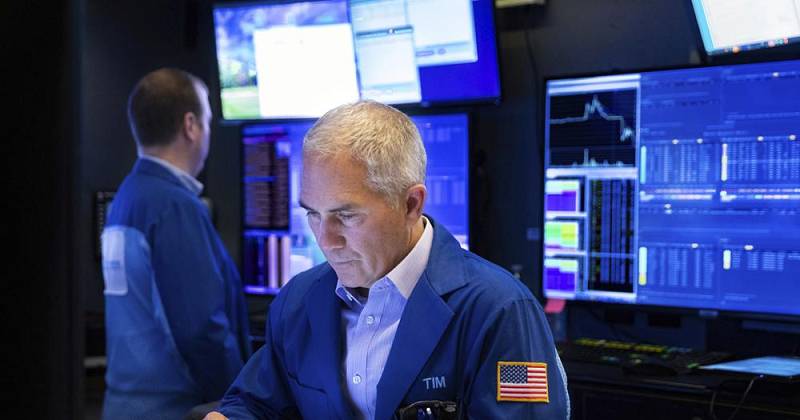
Stocks ended a week of choppy trading on Wall Street with a broad sell-off on Friday, giving the major indexes their second weekly loss in a row.
The selling slowed down in the afternoon, but it picked up again in the final hour of trading. The Dow Jones Industrial Average and the S&P 500 both dropped 0.7 percent. The Nasdaq composite, on the other hand, took the brunt of the selling, losing 1.2 percent.
Treasury yields have fallen as investors flock to the safety of US assets. The yield on the 10-year Treasury declined to 1.93 percent from 1.97 percent, affecting mortgage and other consumer lending rates.
Investors have been watching the recent developments in Ukraine, where Russia has been deploying soldiers on the border, all week. Investors are worried about the tensions as they try to figure out how the economy will respond to growing inflation and expected interest rate hikes.
“Investors are facing geopolitical concerns, Fed tightening, and peak valuations,” said Peter Essele, Commonwealth Financial Network’s head of portfolio management. “Anytime you have a trifecta scenario like that, you’re going to have volatility.”
Then there’s the worry about what might happen in Ukraine during the holiday weekend, especially since Us markets will be closed on Monday for President’s Day.
“With no resolution on Russia or Ukraine, you’re heading into a lengthy weekend,” said Tom Hainlin, national investment strategist at US Bank Wealth Management.
The S&P 500 index dropped 31.39 points to 4,348.87 points. The benchmark index is presently down 9.3% from its all-time high reached on January 3.
The Dow Jones Industrial Average dropped 232.85 points to 34,079.18, while the Nasdaq lost 168.65 points to 13,548.07. The Russell 2000 index slid 18.76 points, or 0.9 percent, to 2,009.33, as small-company stocks declined as well.
Tensions over Russia and Ukraine have been rising for the past week, throwing a wrench into markets that had been focusing on inflation, central bank monetary policy, and economic growth. The United States has given some of its harshest and most explicit warnings yet about how a Russian invasion of Ukraine may play out, and its Western partners have gone on high alert for any attempts by the Kremlin to create a bogus pretext for a new European war.
A military clash between Russia and the United States might interrupt energy supplies and cause extraordinarily fluctuating energy prices.

Post Your Comments